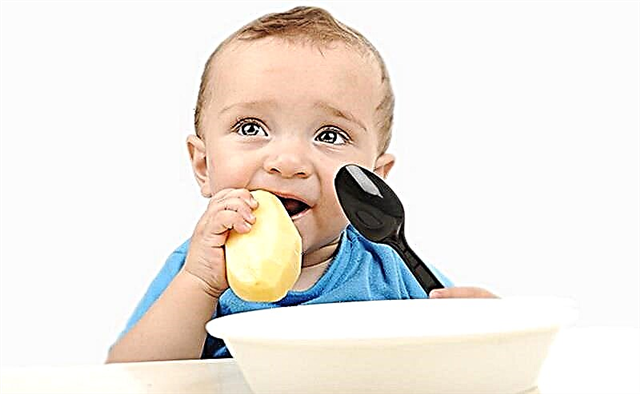All children cry, this is the norm. Someone "sheds a tear" more often, someone less often. Only severe stress (prolonged absence of mother's attention, loss of a favorite toy, etc.), a noticeable deterioration in well-being or acute physical pain can make one cry. Another has "eyes in a wet place" because of any nonsense (he dropped jam on his pants, it is impossible to assemble a puzzle or build a tower of cubes, etc.). Time to dine or go to bed, go for a walk or return from a walk, go to kindergarten and shop, visit relatives are also risky situations. And not always adults, seeing "tears on the wheels", know how to behave correctly in order to calm the baby. Childish tears leave few people indifferent. But when it seems to parents that there is no reason for them, the reaction may not be entirely correct. Here are five common parenting mistakes to avoid.

No need to shout and forbid
If you are upset, indignant, offended by something so much that you are ready to burst into tears, could you instantly “align” emotions and smile carelessly at the first request? Hardly. A child cannot do this either. Therefore, it makes no sense to demand an immediate cessation of crying, especially in raised tones. The fact that you do not understand how your baby is feeling will upset him even more. By forbidding to pour out grief, you risk:
- get hysterical in protest;
- to provoke psychological "constriction" of the crumbs under the yoke of the accumulated grievances, anger and discontent;
- break your psycho-emotional connection with the child and the ability to communicate openly with him.
Therefore, screaming is a common, but least effective way of dealing with children's tears.

Excessive worry
Even if you are extremely emotional by nature, you do not need to panic at every opportunity. Many parents rush headlong into children's tears, wipe their tears and lisp theatrically, or even shake with horror at the sight of the slightest abrasion on the precious child's knee.
The son tripped and broke his knee? Do not run to him headlong, saying how poor and unhappy he is. Stay calm. Examine the wound and assess the position. Seeing that the parents do not panic, the boy will very quickly come to his senses. Abrasions and broken elbows in childhood are a matter of everyday life. If you arrange a drama every time, this can adversely affect the development of the baby, on his perception of any unpleasant events (https://detstrana.ru/article/deti-3-7/vospitanie/5-nepravilnyh-reaktsij-na-detskie-slyozy /).
Stop! Behave like an adult. Assess the situation soberly. In the end, your tendency to dramatize any little thing can be detrimental to the development of the baby and his perception of negative events in the future. And such injuries will be more serious than broken knees.
On the contrary, the calmness of the parents is transferred to the child, and he quickly forgets about the tears and their reason.
Taunts and annoyances
By “devaluing” childhood experiences, annoyedly brushing them off, you risk never teaching your child to boldly face problems and fight them. After all, the baby needs your support! The worst option is caustic comments that resemble mockery. If you cried out of humiliation, injustice or resentment, and someone told you: "That's a roar!" - would that calm you down?

Do not discount the experience by asking, "Stop whining over such nonsense!" For you, a quarrel with a friend or a reprimand from your superiors is not a trifle? Surely be upset. Pain, fatigue, disappointment, because of which children can cry - these are no less significant problems, it is better to treat them with understanding, so that in the future the little person will learn to overcome them.
Humiliating remarks addressed to boys are also unacceptable: "Ugh, she is roaring like a girl!", "You seem to be not a man for me" ... Thus, you deprive your son of the right to openly express his feelings, which can lead to serious problems in the future. But everyone can experience anxiety, excitement, pain, and gender differences do not take place here.
Rudeness and intimidation
Rudeness, harshness and the desire to scare are also not the best parenting ideas. Even if you are in a hurry for a train or an important meeting, an appointment with a doctor, or are late for the bus. Even if you yourself are tired and upset, do not speak rudely in response to the child's tears and complaints.

Take a minute pause, find out what made the child cry, if everything is so serious. Promise to solve his problems, but a little later (but you must fulfill the promise!).
This is much more effective than threatening to give the child to someone else's uncle, turn it over to the police or call an evil doctor with an injection (and this intimidation is the most popular threat in terms of frequency of use). Fear does not at all set you up for a positive, which means that it does not contribute to calmness.
Indifference
Psychologists advise not to lose your head if the child is crying. However, calmness and indifference / indifference should not be confused. Not a single person cries just like that, and even more so, the reason for crying is always there. The more quickly you find out the cause of children's tears, the faster you can eliminate it without risking good relations with the baby. If you remain indifferent to children's tears, you risk a good relationship: a daughter or son may think that their feelings are indifferent, and will withdraw, stop trusting you.

And in no case should you use physical pressure! Even light spanking can have serious consequences for the child's psyche (to beat or not to beat a child is the consequences of physical punishment of children). Do not deprive your baby of trust in you and the world around you. In the future, this is fraught with resentment and aggression, directed, among other things, against you. It is better to show your child that you are there and ready to help.
An innocent, from the point of view of an adult, a slap can undermine the child's trust in the world, in close people, and contribute to anger and aggression towards others.
Children's whims are sometimes difficult to bear, morally exhausting. You feel like a taut string that is about to break. Always, even if it's hard for you, remember that the child is also bad. Crying for him is a way to let off steam, calm down, accept the situation. And at such moments he desperately needs your love, participation and care. Remember this simple truth: the less children you think deserve love at a particular moment, the more desperately they need it. Therefore, do not hesitate to hug your baby and tell how much he is dear to you.



